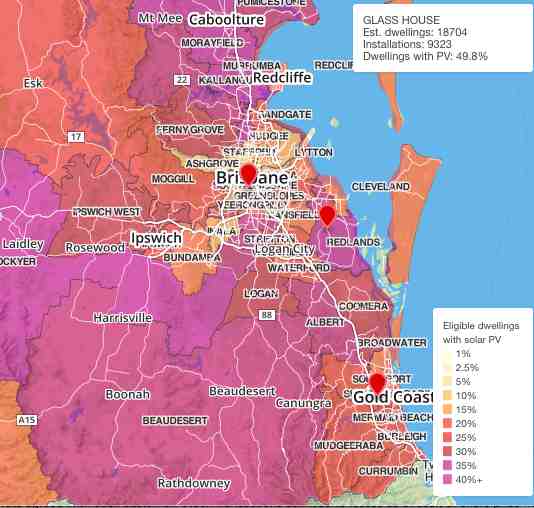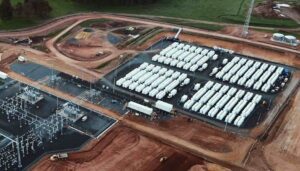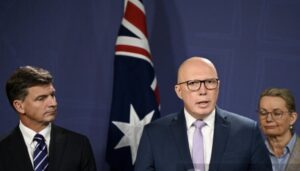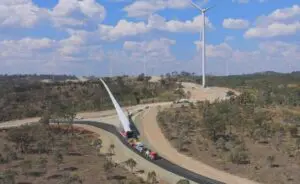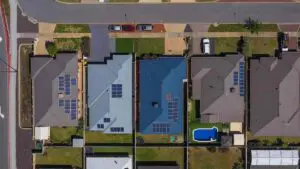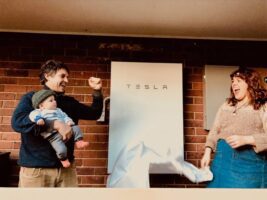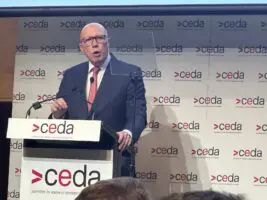On any detailed analysis, the results announced by Peabody Coal – the world’s biggest privately-owned coal miner – should sound the death knell for Queensland’s Campbell Newman government.
Peabody, with extensive operations across the globe and including Australia, reported a much wider loss than expected, slashed its dividend by 97 per cent and saw its shares plunge to a 12-year low.
The significance for Queensland is this: Premier Newman has bet his state’s economy on a rosy future for coal. He hopes the Galilee Basin, for which he has proposed royalty holidays and direct government investment – can mop up some of the jobs that will be lost when the LNG construction boom comes to an end.
As government-led economic strategies go, it is about as dumb and short-sighted as they come. He is proposing to privatise one industry (the generators and the grids), so he can free up money to nationalise another (railways supporting the coal mines). Without that government subsidy, there is no way the project could go ahead. Even with the subsidy, it is highly doubtful.
Even The Australian newspaper – the favoured reading of white male octogenarians – has realised this. Business correspondent Richard Gluyas wrote this week that Newman’s coal strategy was looking shaky, because if Peabody could not make any money out of Queensland coal, there was bugger all chance of India’s Adani Group making money and attracting investors to the Galilee Basin, which needs some $16 billion invested in infrastructure before it sells its first lump of coal.
“The stakes are incredibly high, not only for Newman but for the nation’s official coal ambassador Tony Abbott,” Gluyas wrote.
“It begs the question: if the biggest private coal company in the world struggles to register a gross profit from its Australian coal business, how can Adani claim to potential backers that it will be commercially viable when the total cost of its project, including maintenance and continuing capital expenditure, is expected to top $16bn over four years?
The bitter irony is that Newman himself knows this to be garbage policy. Or, at least that is what he said in 2011, before he became Premier.
As New Matilda reported this week, a video has emerged of Newman comprehensively demolishing the idea that the Galilee Basin should be exploited, let alone funded by the state government.
“Rather than digging huge piles of black stuff out of the ground a few hundred kilometres north of here to keep those lights on, perhaps it’d be better in the long term for our children, our grandchildren and generations to come that we actually set things up differently,” Newman said when Lord Mayor of Brisbane.
“We have a really strong vision that we want this to be the most sustainable city in Australia and there are many aspects to delivery in terms of that,” Newman said.
But any such vision was blurred by the trappings of power, and presumably the influence of the mining lobby once he became Premier. And he hasn’t stopped at government handouts.
He has weakened the anti-corruption laws, made it all but impossible to protest against major coal projects, and ditched environmental oversight.
“Setting up differently” – as Newman described it – would be to embrace the rapid change that is going on around the world and which Queensland, if he bothered to look, is actually leading.
Queensland, along with South Australia, has the highest rates of rooftop solar penetration in the world. That is a scary scenario for the state-owned energy incumbents, particularly the coal-fired generators. But it puts Queensland at the forefront of the big swing from centralised generation to distributed generation, and that is a phenomenon that should be accelerated rather than slowed.
Its own network operators speak of the need for micro-grids and stopping the reliance on redundant poles and wires delivering coal-fired electricity to customers thousands of miles away. Ergon is installing unsubsidised battery storage on its networks to save costs. The Sunshine State could be exactly that.
Bizarrely, however, Newman has done nothing but attack the solar industry since being elected to power.
The potential folly of this strategy was highlighted in Sophie Vorrath’s story on Thursday, which noted that Queensland’s burgeoning number of solar households could help decide the outcome of the election.
Data compiled by Sunwiz from Clean Energy Regulator records show the percentage of solar households exceeds the margin for the electorate in the vast majority of Queensland seats.
In Premier Campbell Newman’s own electorate of Ashgrove, which the LNP holds by a margin of just 6 per cent, 10 per cent of residents (or 17,615 households) have a PV system on their roof.
“The Newman Government squaring blame on solar owners for the rise in power bills has been misguided to say the least,” said Solar Citizens national director Claire O’Rourke in a statement on Thursday.
Newman is fortunate, because Ashgrove has a relatively low penetration of rooftop solar. The Australian Photovoltaic Institute has just released a fascinating map that shows the penetration of solar in Queensland electorates.
In areas of the Gold Coast and the Sunshine Coast, and their hinterlands, and to the west of Brisbane, the rate of penetration in many electorates is more than 40 per cent of available homes. In the LNP electorate of Glass House, in the Sunshine Coast hinterland, it is 49 per cent.
As much as the solar lobby would like to think that solar could swing the election, it probably won’t. There are simply too many issues for the electorate to deal with. But it may have an influence, and tip the government over the edge.
The fact that Newman could hold 73 seats in an 89 seat parliament and still be at risk of losing power is extraordinary in itself.

